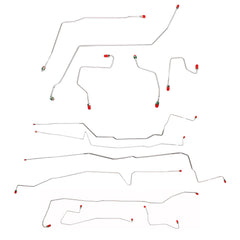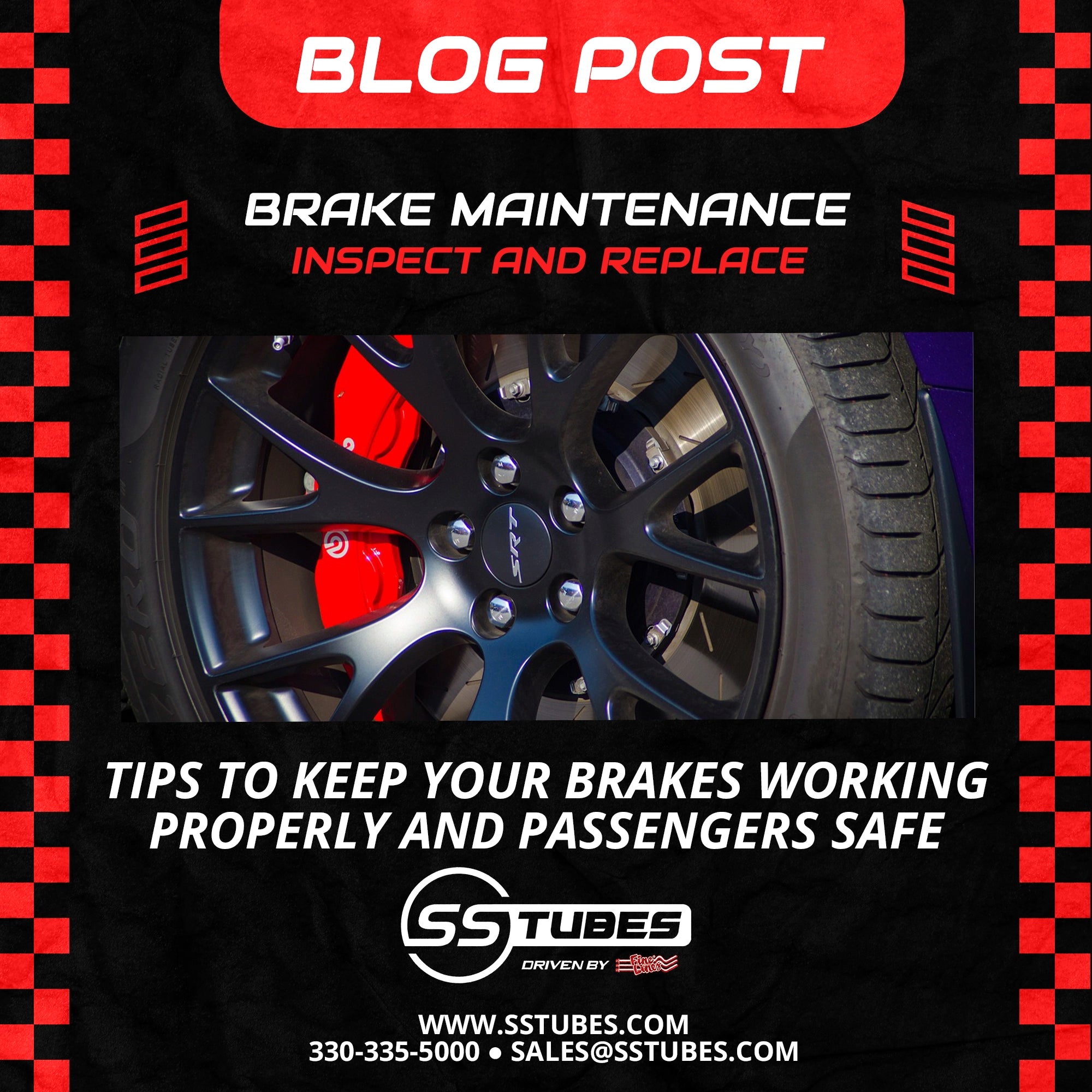The Importance of Maintaining Your Brake Lines

Your brake lines are one of your car's most important safety features. They are responsible for carrying brake fluid to the brake calipers, which then apply pressure to the brake pads to slow or stop your car. If your brake lines are worn or not properly maintained, they can corrode, leak, or rupture. This can lead to a loss of braking power, which can increase your risk of an accident.
Here are some tips for maintaining your brake lines:
- Inspect your brake lines regularly. This is especially important if your car is older or if you live in an area with harsh winters.
- Check the brake fluid level in the reservoir. If the level is low, it could be a sign of a leak in the brake lines.
- Look for signs of wear and tear. If you see any cracks, leaks, or bulges in your brake lines, have them replaced immediately.
- Use high-quality brake fluid. Brake fluid breaks down over time, so it's important to replace it every few years.
By following these tips, you can help to ensure that your brake lines are in good condition and that your brakes will work properly when you need them.
How To Diagnose Brake Problems

Sometimes parts just wear out, even with all the maintenance schedules followed. When this happens it helps to know what to look for to diagnose brake issues; Do I have a brake fluid leak? Why? Where is the brake fluid leak?
Here are some of the signs that your brake lines may need to be replaced:
- Your brake pedal feels spongy or feels like it has more travel than usual. This is a sign that there is air in the brake lines, which can happen if the lines are worn or damaged.
- Your brake lights are staying on even when you're not braking. This is another sign that there is air in the brake lines.
- You hear a hissing or squealing noise when you brake. This noise can be caused by a leak in the brake lines.
- You see fluid leaking from the brake lines. This is a clear sign that the brake lines are worn and need to be replaced.
What Can Cause Brakes to Fail?

- Corrosion. Corrosion can weaken the brake lines and make them more likely to rupture.
- Age. Brake lines typically last for about 10 years, but they can wear out sooner if they are not properly maintained.
- Accidents. Brake lines can be damaged in an accident, even if the car does not appear to be seriously damaged.
If you notice any of these signs, it's important to inspect your brake lines as soon as possible. Replacing your brake lines is a relatively inexpensive repair, but it's one that could save your life.
What’s the Best Choice in Brake Lines?
 |
 |
 |
Stainless steel brake lines are the strongest lines on the market. They resist corrosion, rust, and general deterioration. These brake lines are low maintenance and can last the lifetime of your vehicle if treated properly. You can even get prevent stainless steel brake lines to fit your vehicle for an easier installation.
Here are some of the benefits of using stainless steel brake lines:
- Stainless steel brake lines are less likely to leak.
- Stainless steel brake lines can withstand higher temperatures than traditional rubber brake lines.
- Stainless steel isn’t affected by harsh chemicals used to clear snow from the roads.
If you're looking for a way to improve the safety and performance of your brakes, consider upgrading to stainless steel brake lines. They're a relatively inexpensive investment that could save your life.
I hope this blog post has helped you to understand the importance of maintaining your brake lines. By following these tips, you can help to ensure that your brakes will work properly when you need them and that you'll be safe on the road.

